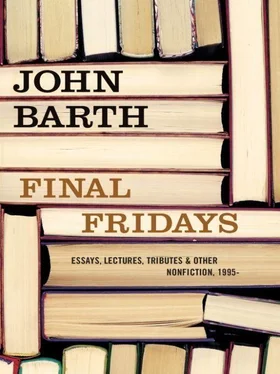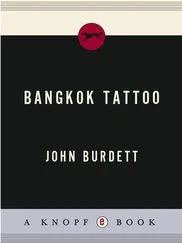In analogous wise, the Christian New Testament is much aware of itself — or at least its compilers and commentators have been thus aware of it — as following, perhaps as “completing,” the Hebrew Bible. To this lay and respectfully agnostic reader, that awareness is most intriguing in what I think of as the Jesus Paradox. Indeed, at a point some decades past in my novelizing career, this paradox virtually possessed my imagination, although I came to it not from any particular preoccupation with the Bible but via a more general preoccupation with the myth of the wandering hero — Joseph Campbell’s “hero with a thousand faces”—as it appears in virtually all ages and cultures. The résumés of such mythic figures are famously similar: Lord Raglan’s early study The Hero lists 22 items more or less common to their CVs, from “(1) The hero’s mother is a royal virgin,” to “(22) He has one or more holy sepulchres,” and proceeds to measure against this template a fair assortment of candidates, from Oedipus to Robin Hood, giving each a score.
Fascinated, in the 1960s, with three novels under my authorial belt, I set myself the following thought-experiment: Imagine a candidate for or aspirant to mythic-herohood who happens to know the script , so to speak, as Virgil knew Homer’s epics and as Dante knew both Virgil’s and Homer’s, and who takes it as his project to attain mythic-herohood by following that script to the letter: by repeating or imitating in detail the curriculum vitae or typical career-moves of his eminent predecessors. Those precursors, let us imagine, unselfconsciously did what they did, as we imagine the bardic Homer unselfconsciously composing, evolving, or refining his brace of epics; our man, however, does what he does because he knows that that’s what mythic heroes do . He is, in a word, uninnocent. I then imagined (and got gratifying fictive mileage from) two exemplary, perhaps cautionary, case studies: the minor Greek mythic hero Bellerophon and the tragicomic protagonist of my novel-then-in-progress, Giles Goat-Boy .
In Case 1, per my reorchestration of the myth, Perseus’s envious cousin Bellerophon conscientiously and meticulously imitates the pattern of mythic-herohood as embodied by his celebrated relative and becomes, not the mythic hero he aspires to be, but a perfect imitation of a mythic hero, which is of course not the same thing at all. He has completed the curricular requirements, as it were, but that circumstance no more makes him a bona fide mythic hero than completing the requirements for an M.A. makes one a true master of the arts. Similarly (to reapproach our subject), one might imagine a David Koresh or Jim Jones who takes himself to be not only divinely inspired but in some sense the son of God, and who also happens to know the Old Testament prophecies; in order to validate himself as the Messiah, he sees to it that whatever that script calls for—“whatever the part requires,” as proverbial starlets say — he does, perhaps including even death by immolation or poisoned Kool-Aid. He has followed, more or less to the letter, the messianic curriculum, but….
Case 2 is altogether more problematical and interesting: Suppose our candidate to be not merely an aspiring mythic hero or one more entertainer of messianic delusions, but a bona fide young Aeneas or, in fact, the long-prophesied Messiah. He understands what he must do 13—here is the monster to be slain, as aforewarned; here is the prophesied kingdom to be established or reclaimed; here approaches the foretold dark consummation, et cetera — and he does it, not in this case because that is what aspiring mythic heroes or messiahs are expected to do in order to qualify, but because he is in very truth a mythic hero or the Messiah. In short, while the template or the prophecies validate him, he likewise validates them. To get right down to it: Among Jesus’s contemporaries, the fellow’s claim to messiahship might be buttressed by his doing what Isaiah and company predicted that the Messiah will do; to believing Christians, however, it is at least equally Isaiah’s claim to prophethood that is buttressed by Jesus’s fulfillment of the prophecies.
That reciprocal or coaxial validation — for Christians, the very crux (pardon the metaphor) of that between the Old and New Testaments — is the paradox of the Jesus Paradox, to which I shall return after pointing out that its secular analog applies not only to “later-arriving” mythic figures like Bellerophon and Aeneas but to later authors like Virgil, not to mention us Postmodernists. As afore-suggested, by writing an Aenead that combines an Odyssey with an Iliad , Virgil gives the impression of wanting to outdo the Homer of whom he is the self-conscious heir and to whom his Latin epic is also a homage, just as Augustan Rome is at once the cultural heir and the political master of classical Greece. You want to be a great epic poet? Here are your models. Virgil follows them — programmatically but not slavishly — and because he happens to be a great epic poet, his Aenead turns out to be not a monumental Case-1 imitation of the great model, but a great epic poem. Thirteen centuries later, Dante compounds the stunt, taking as his literal and figurative guide not “unselfconscious” Homer but self-conscious (and Homer-conscious) Virgil, and not only scripts himself into the wandering-hero role but orchestrates his own welcome, as afore-footnoted, into the company of the immortals — in a Limbo, moreover, where they must ineluctably remain, but from which he will proceed through Purgatory to Paradise. Talk about chutzpah! Happening to be a great poet, however, Dante brings the thing off — and we now return to the Jesus Paradox.
Of the gospeleers, the most “Virgilian” in this respect is Matthew, in whose account of Jesus’s career just about everything goes literally by the book:
• The Annunciation (1:22, 23): “All this took place to fulfill what the Lord had spoken by the prophet: ‘Behold, a virgin shall conceive [et cetera].’” 14
• The family’s flight into Egypt (2:15): “This was to fulfill what the Lord had spoken of by the prophet, ‘Out of Egypt have I called my son.’”
• Their subsequent residency in Nazareth (2:23): “And [Joseph] went and dwelt in a city called Nazareth, that what was spoken by the prophet might be fulfilled, ‘He shall be called a Nazarene.’”
• Jesus’s later move to Galilee (4:12–14): “. . he withdrew into Galilee. . that what was spoken by the prophet Isaiah might be fulfilled. . ”
• His “confidential” healing of the sick and the lame (12:15–21): “. . many followed him, and he healed them all, and ordered them not to make him known. This was to fulfill what was spoken by the prophet Isaiah: ‘[The Messiah] will not wrangle or cry aloud, nor will anyone hear his voice in the streets. . ’”
And so on and on. It is from the master himself, one guesses, that the apostle borrows this operative formulation: from Jesus’s flat-out declaration in the Sermon on the Mount, as Matthew reports it (5:17)—“‘. . I have come not to abolish [the law and the prophets] but to fulfill them’”—to his reminding those of his followers indignant to the point of violence at his arrest and impending judgment (26:53, 54): “‘Do you think that I cannot appeal to my Father, and he will at once send me more than twelve legions of angels? But how then should the scriptures be fulfilled, that [what’s about to happen] must be so?’” For this reader, the climactic such moment comes at the Last Supper, when, facing the prospect of his “death foretold,” Jesus declares (25:24), “The Son of man goes as it is written of him.” Even nonbelievers may feel a frisson at that remark: the hero’s calm acceptance of his hard fate. He has, in effect, no choice: If upon his agonized later prayer the bitter cup really were rescripted to pass from him, then either he or the sacred original script would be falsified.
Читать дальше












